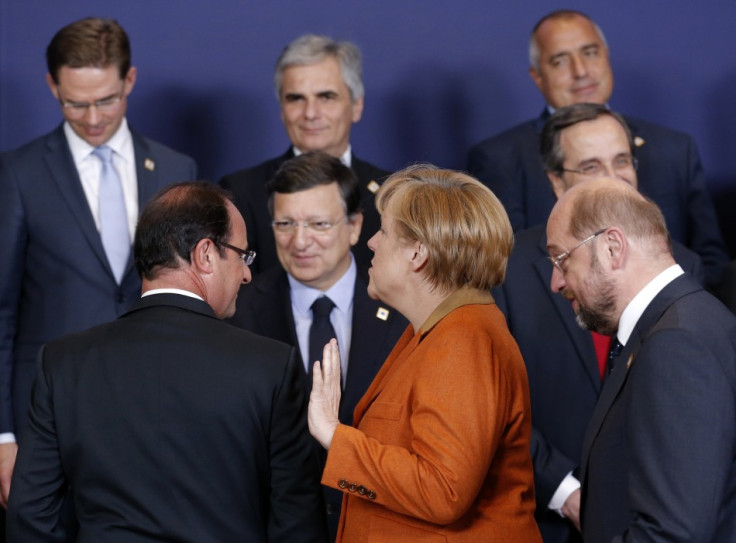EU Leaders Take Major Step Towards Single Banking Regulator Over German, British Concerns

The European Union has agreed steps to create a single banking regulator for the region's 6,000 financial institutions but German reluctance for the pace and scope of the proposal could limit its effectiveness.
EU leaders debated late into the evening in Brussels on Thursday, before telling media they had cobbled together a framework which would put the European Central Bank at the top of a regulatory system for the region's banks by 1 January 2013.
Within a year, European Council President Herman Van Rompuy said, nearly all of the 27 member nations' banks would fall under its jurisdiction.
"We give our finance ministers the ambitious task of establishing a legal framework by 1 January 2013," Germany's Chancellor, Angela Merkel, told reporters in Brussels. "This banking supervision will then be built up in the course (of the year)."
The time-frame of the development will be seen as something of a victory for France's President Francois Hollande, who has consistently pushed for a speedy creation of a single financial watchdog in order to help sever the viscous circle of eroding bank balance sheets and government financial support.
With the full implementation of the supervisory framework, the region's permanent bailout fund, the €700bn European Stability Mechanism, will likely be able to inject capital directly into troubled banks, keeping that same amount of debt from appearing on a country's 'balance sheet'.
However, significant agreements still need to be ironed out by EU Finance Ministers in the coming months, including the issue of deposit guarantees and how they should be paid.
German Finance Minister Wolfgang Schauble, who has long argued for a go-slow approach to regional financial regulation in an effort to protect the hundreds of small and medium-sized banks within Germany that are the lifeblood of its economy, has also resisted the idea of a centrally funded programme to protect the cash of savers put into banks outside the country.
"The agreement reached last night is a compromise between the French position and the German one," Barclays' analyst Fabrice Montagne said in a client note Friday. "As usual, the Eurogroup will have to agree on the practical details and the discussions will likely be complicated and delayed. However, last night's agreement is positive and makes possible the gradual implementation of the (regulator) in the course of 2013, while the door remains opened for direct bank recapitalisations, although probably under certain conditions."
Britain, home to Europe's biggest financial centre, will also not be participating in the region-wide framework, but needs to work for ways to ensure that rules set at the ECB level would not circumvent or challenge decisions taken by its own new regulator, the Bank of England, when it adopts its broader role next year.
Chancellor George Osborne has also expressed concern that the 10 European Union members that do not use the single currency could find their banking systems at a competitive disadvantage if rules are set to benefit the 17 nations of the euro zone.
© Copyright IBTimes 2025. All rights reserved.





















